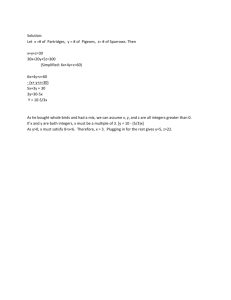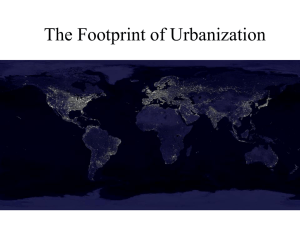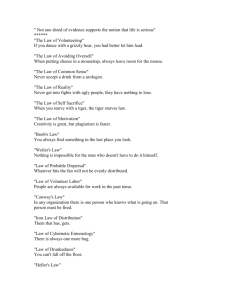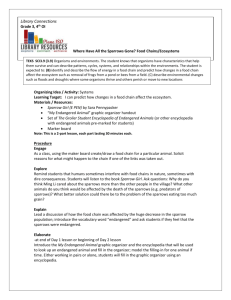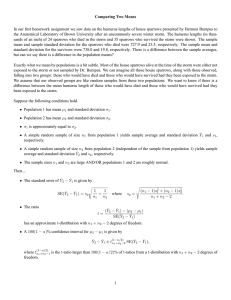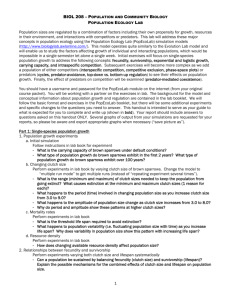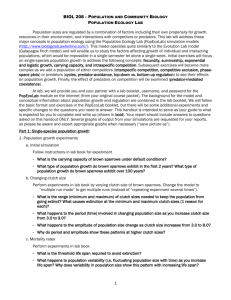View PDF - Face to Face Media
advertisement
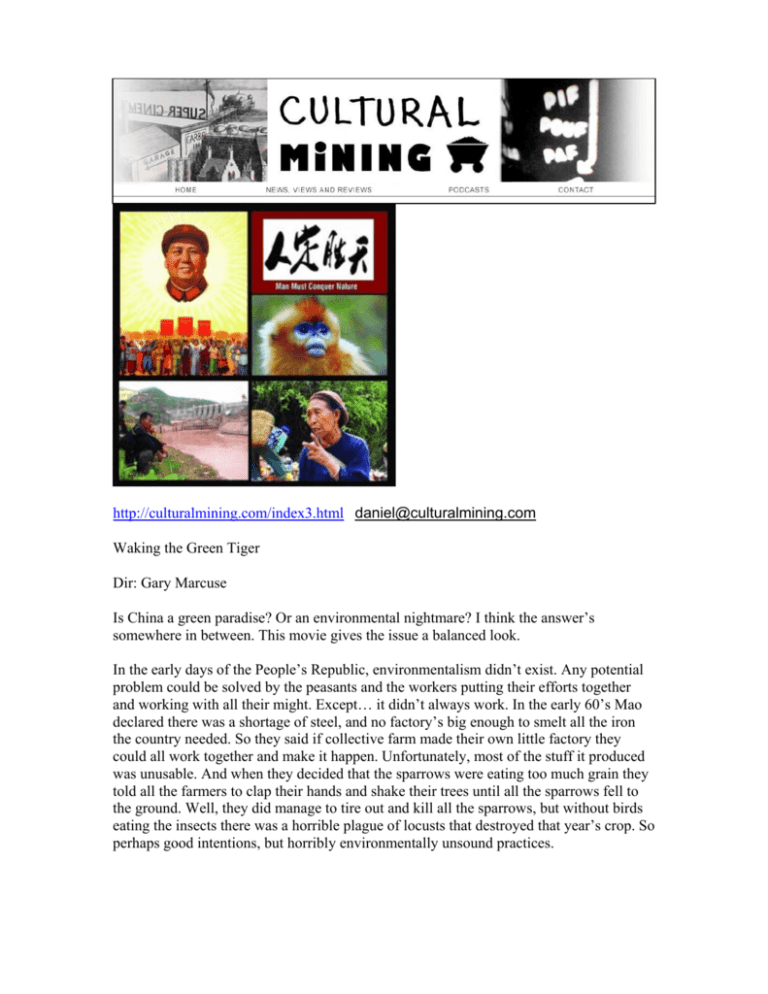
http://culturalmining.com/index3.html daniel@culturalmining.com Waking the Green Tiger Dir: Gary Marcuse Is China a green paradise? Or an environmental nightmare? I think the answer’s somewhere in between. This movie gives the issue a balanced look. In the early days of the People’s Republic, environmentalism didn’t exist. Any potential problem could be solved by the peasants and the workers putting their efforts together and working with all their might. Except… it didn’t always work. In the early 60’s Mao declared there was a shortage of steel, and no factory’s big enough to smelt all the iron the country needed. So they said if collective farm made their own little factory they could all work together and make it happen. Unfortunately, most of the stuff it produced was unusable. And when they decided that the sparrows were eating too much grain they told all the farmers to clap their hands and shake their trees until all the sparrows fell to the ground. Well, they did manage to tire out and kill all the sparrows, but without birds eating the insects there was a horrible plague of locusts that destroyed that year’s crop. So perhaps good intentions, but horribly environmentally unsound practices. So this movie traces that period to the present, and how the growing awareness of environmental and cultural destruction taking place is awakening a huge number of people as to what’s going on and what they can do to change it. There are thousands of environmental NGO’s in China, some maverick journalists and filmmakers showing the country what’s behind the curtain, and local activists who are fighting the huge corporations and government entities there building dams, mines and rerouting lakes and rivers. It focuses on the Salween or Nu River and in particular the Tiger Leap gorge, a dramatically beautiful canyon where they might be building a series of dams, and moving out the people who live around there. The Salween river is one of the world’s biggest free-flowing rivers, surrounded by unusual monkeys, diverse wildlife and ecosystems, and unique languages and cultures that exist only there. So, a filmmaker, Shi Lihong, took some of the Salween villagers in a bus across the country to talk to a similar place on the Mekong river. When they saw and spoke to the people there, how they were living now, (compared to what their lives were like before they were evicted) they were horrified and galvanized to take action back home. And the documentary itself, along with a series of newspaper articles, captured the interest of many people across China who also felt it would be an environmental disaster. This is a great documentary showing the grass-roots environmental campaigns and public reactions in a vast country we know very little about. Using archival footage, great Maoera propaganda posters and photos, and interviews with contemporary journalists and government officials, it goves a good overview of what’s happening right now in China, and what people are doing about it

